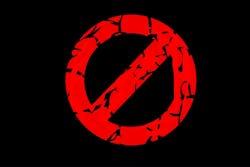FCC bounces RDOF winners, sends letters to 197 others as part of program ‘clean up’
The U.S. Federal Communications Commission (FCC) states it is ready to authorize the releaseof $311 million in funding via the the Rural Digital Opportunity Fund (RDOF). However, it also says it plans to “clean up” the program. That desire saw the Commission reject requests from AB Indiana and LTD Broadband for program deadline extensions and send letters to 197 awardees asking them if they wish to withdraw their RDOF requests “from those places already with service or where significant questions of waste have been raised.” The FCC also issued what it called an initial list of RDOF winners in default of their obligations.
“This program can do great things, but it requires thoughtful oversight,” said Acting Chairwoman Jessica Rosenworcel. “That’s why we are refocusing the program on unserved areas and putting winning bidders on notice of their obligation to ensure that support goes to the areas that need it. And for those applicants who are dragging their feet or can’t meet their obligations, follow the rules or we will disqualify you and move on.”
The FCC says 48 broadband providers will receive funding to enable gigabit broadband to nearly 200,000 homes and businesses in the U.S. over the next 10 years. However, as Rosenworcel indicated, the FCC also threatened to revoke funding from several other potential RDOF recipients. For example, in an order issued July 26, the FCC ruled that AB Indiana and LTD Broadband “failed to engage in good faith efforts to pursue and obtain the required ETC [eligible telecommunications carrier] designation from the states for which we deny their petitions.” Those states are Florida in the case of AB Indiana and California, Oklahoma, and Kansas in LTD Broadband’s case. LTD, which describes itself as “4th largest fixed-wireless WISP in the U.S.” yet bid for RDOF money with promises of laying fiber, also has sought a deadline waiver for programs in five other states (Iowa, Nebraska, North Dakota, South Dakota, and Texas); the FCC has not yet ruled on those.
Meanwhile the 30-page default list includes awarded areas that the recipients or their subsequent assignees have informed the FCC they no longer intend to pursue. Notable names on the list include Atlantic Broadband, Charter Fiberlink, and Time Warner Cable Information Services. All of the areas covered in the default list will be eligible for future funding programs, said the FCC.
Finally, the 197 letter address instances that have engendered “complaints that the program was poised to fund broadband to parking lots and well-served urban areas,” in the words of the FCC.
For related articles, visit the FTTx Topic Center.
For more information on FTTx technology and suppliers, visit the Lightwave Buyer’s Guide.
To stay abreast of fiber network deployments, subscribe to Lightwave’s Service Providers and Datacom/Data Center newsletters.
About the Author

Stephen Hardy
Editorial Director and Associate Publisher, Lightwave
Stephen Hardy is editorial director and associate publisher of Lightwave and Broadband Technology Report, part of the Lighting & Technology Group at Endeavor Business Media. Stephen is responsible for establishing and executing editorial strategy across the both brands’ websites, email newsletters, events, and other information products. He has covered the fiber-optics space for more than 20 years, and communications and technology for more than 35 years. During his tenure, Lightwave has received awards from Folio: and the American Society of Business Press Editors (ASBPE) for editorial excellence. Prior to joining Lightwave in 1997, Stephen worked for Telecommunications magazine and the Journal of Electronic Defense.
Stephen has moderated panels at numerous events, including the Optica Executive Forum, ECOC, and SCTE Cable-Tec Expo. He also is program director for the Lightwave Innovation Reviews and the Diamond Technology Reviews.
He has written numerous articles in all aspects of optical communications and fiber-optic networks, including fiber to the home (FTTH), PON, optical components, DWDM, fiber cables, packet optical transport, optical transceivers, lasers, fiber optic testing, and more.
You can connect with Stephen on LinkedIn as well as Twitter.
